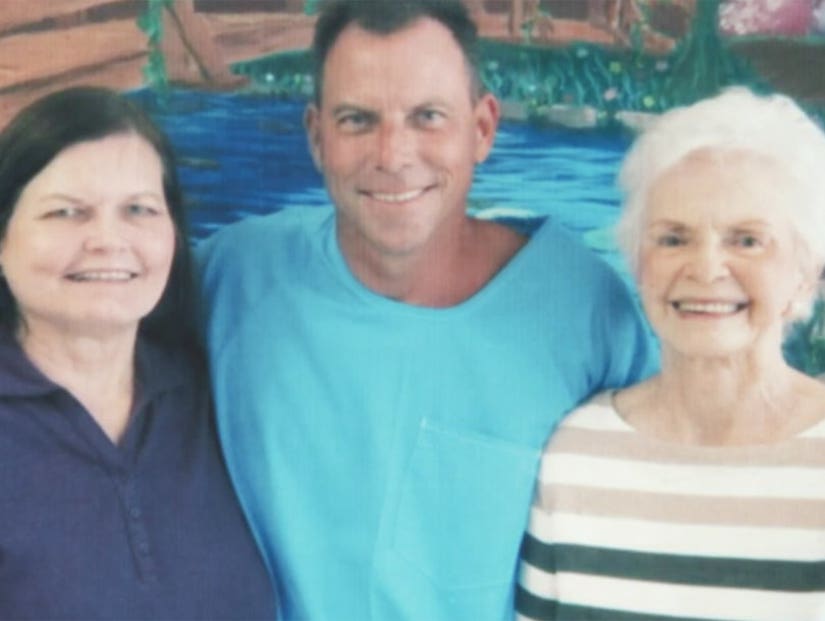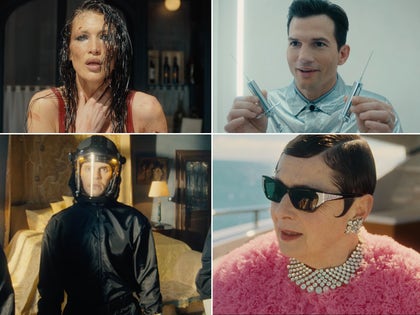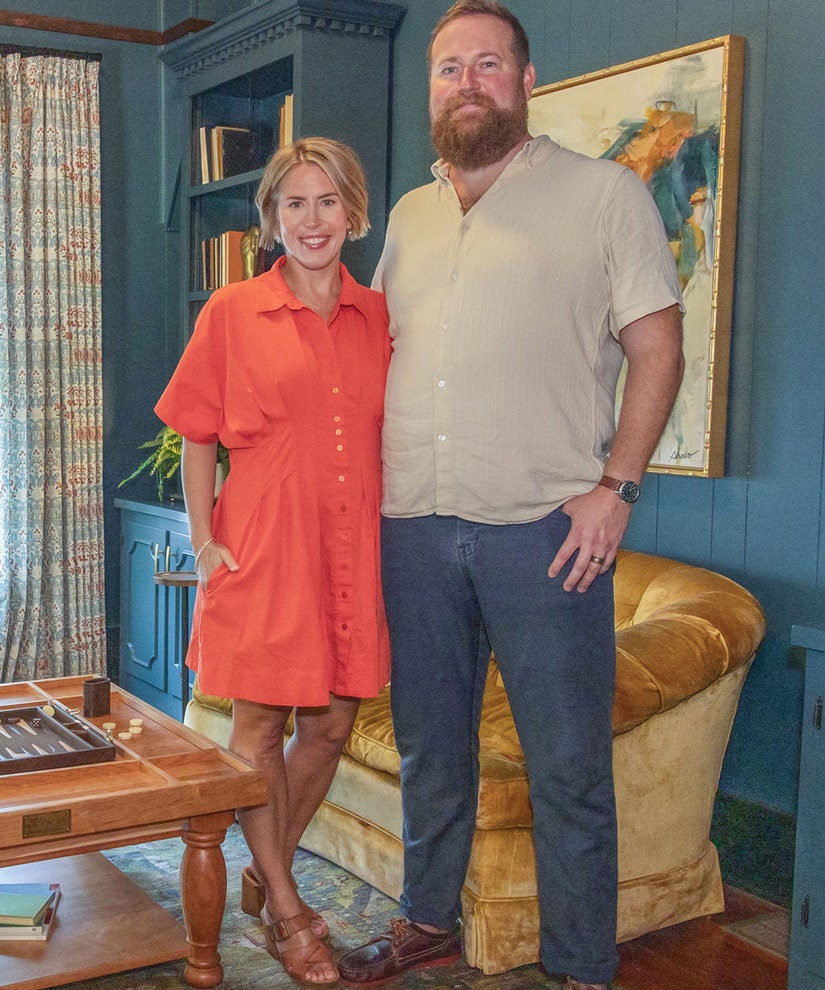On August 20, 1989, Erik and Lyle Menendez brutally murdered their parents, Jose and Kitty Menendez, with two 12-gauge shotguns. While Lyle has been telling his side of the story in numerous interviews -- including many this year -- Erik has remained silent since 2005.
Speaking from inside the walls of the Donovan Correctional Facility, the other brother has been detailing his personal account on A&E's new documentary series, "The Menendez Murders: Erik Tells All." While the previous hours focused on the events leading up to and the night of the murder, the trial and mistrial, Thursday's finale covered the Erik's life in prison and his hope for freedom.
 AP
AP
Erik Menendez Tell-All Continues: His Shocking O.J. Connection and Reaction to Guilty Verdict
View StoryHere are the biggest revelations:
Learning His Sentence Was "Crushing"
The brothers were both found guilty of first-degree murder and sentenced to life in prison without the possibility for parole. The two were also ordered to be confined in separate prisons.
"I was prepared for the worst. I didn't think that the verdict would be life in prison without the possibility of parole, that was crushing," Erik said. "There were no winners, everybody lost and it was a very painful tragic time for my entire family."
Though he pushed for the death penalty in the '90s, former District Attorney Gil Garcetti said he no longer favors capital punishment, but still believes "justice is done."
 AP
AP
Erik Menendez Tell-All Continues: Lyle's Testimony, Abusive Parents and ... Michael Keaton?
View StoryHis Unconventional Marriage
A lot of the final episode revolved around Erik's wife, Tammi, who tied the knot with the convicted murderer in 1999. Describing how they met, she said she first sent him a letter in 1993 and never expected to hear from him.
"I didn't send him a picture, I'm not sure why we connected. The relationship with Erik kind of changed after he wrote me a letter and asked me to come visit. I didn't want to like him, I didn't want to have feelings for him," she explained. "I visited him again and it got more intense. He got more intense. I moved to Folsom, I visited him 4 days a week. It's a lot of time to spend with somebody one on on. He did not want to share with me a lot of the stuff he had dealt with. He was like an onion. Now I'm the only person in his life that he could trust."
They said "I do" at Folsom prison in a visiting room and no, there are no conjugal visits allowed.
"The reason why I decided to marry him was I had no rights as just being somebody that knew him," she added. "Not that I wasn't emotionally attached, I was, but I really had a main concern about his welfare and what they were gonna do and a wife has more say about what can be done and what they can do to him."
"For me, my marriage to Tammi was the most critical part of being able to endure," added Erik. "My love for Tammi is eternal."
 AP
AP
Erik Menendez's Tell-All Continues: Life in Jail, Molestation Allegations, Wife Speaks
View StoryDisappointment Over Appeals
In 2003, Menendez's appeal came before the 9th Circuit. Though Judge Alex Kozinski pointed out how the state "changed the rules" in the second trial, the verdict was not overturned.
"At the end he said he could not overturn the issues that we had and it was devastating," said Tammi. "I wasn't happy to say the least, I wrote [Kozinski] a letter." After he wrote back explaining his decision in depth, Tammi said, "I do believe that it was a heartfelt letter and he understood what happened, but he couldn't do anything and he wanted to."
Erik's Life Behind Bars
Menendez is currently living in the Richard J. Donovan Correctional Facility in Southern California.
"What is a successful day in prison? It really just means whether or not you are at peace and the people around you are at peace," said Erik. Menendez is a caregiver at the institution, working in hospice and running AA and NA groups.
"I also paint a lot. I really love nature, I miss being able to feel it. I haven't been able to touch a tree in almost 30 years. Painting helps me reconnect with that," he said. "I began to meditate and find what it meant to be a soul. That has given me a great deal of meaning."
In Summer 2017, cameras followed his Aunt Joan and cousin Diane as they visited him. For Erik, the chance to hear some of the stories his mother's sister shared was somewhat cathartic. "I love my mom and I want to understand my mom. My Aunt Joan was filling me in on the difficulties and abuse and trauma my mom suffered as a child," he explained. "We were able to talk about the generational patterns and seeing things in a light that were much more understandable."
 Erik Menendez's paintings, Courtesy A&E
Erik Menendez's paintings, Courtesy A&E
Hope for Freedom
A new law on the books in California might open a new road for appeals for Menendez, as incarcerated victims of sexual assault may be able to appeal their convictions if they weren't allowed to use the assault as a defense.
"From what I'm being told my the lawyers, I'm hopeful that an appeal will be filed and I'll be given another opportunity in court," Erik said. "Looking back on who I was then, from the lens of time of who I am now, I can see how immature, naive and juvenile my thinking was. It's not an excuse, I'm responsible for my time. But I think everything needs to be put into context."
"I fear for Erik's life in prison. The only hope that he has is trying to get out someday, but there has to be a glimmer of light and some sort of redemption he can prove to people," added Tammi. "I'm not saying that he shouldn't have done his time, I'm saying that enough is enough, he doesn't deserve to die in prison and he's going to do if something's not done. And that just beaks my heart because of what his parents did to him."
"I see so many of the people that I care for in prison have died, they go home in a box and it scares me," sad Erik. "I see myself in them and I see me coming up on 30 years incarcerated and I want to go home. I'm hopeful I can get a retrial and a reexamination of the case to allow the jury to hear all the evidence and judge me completely."






















